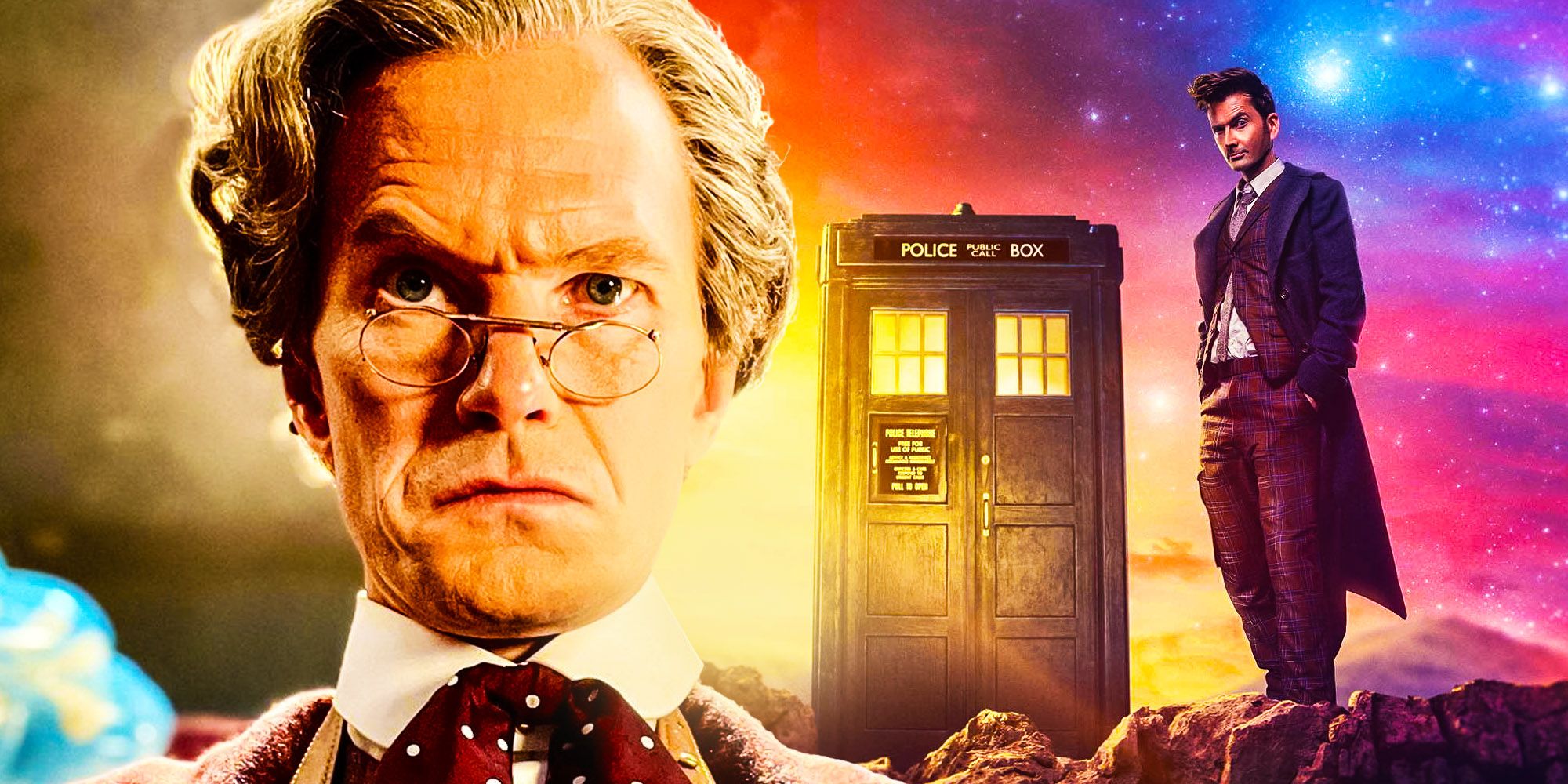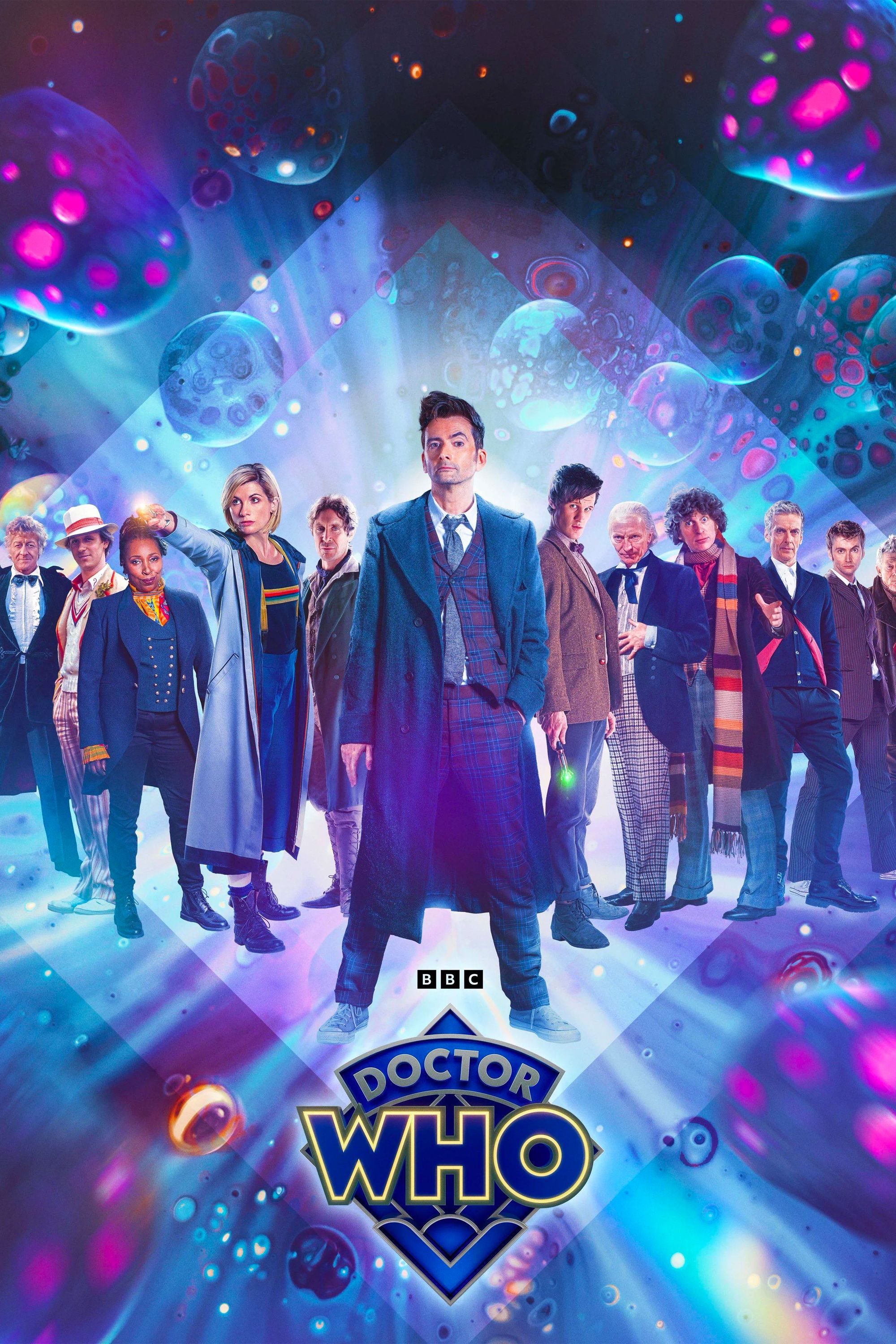Summary
- Doctor Who showrunner Russell T Davies addresses the racist elements of the Toymaker character in the show’s 60th Anniversary specials.
- The Toymaker’s unfortunate connotations and history of racism are incorporated into the character’s interactions and portrayal in the new episode.
- Davies takes careful consideration in bringing back the classic villain, aiming to right past wrongs and tackle problematic elements of the show’s history.
Doctor Who showrunner Russell T Davies unpacks the complicated origins and history of the Toymaker, addressing how he sought to address the villain’s racist elements in the show’s 60th anniversary. The character made his debut in 1966’s “The Celestial Toymaker”, as Michael Gough took on the role to face William Hartnell’s First Doctor in the immortal being’s domain. Neil Patrick Harris would portray the Toymaker in the third 60th Anniversary special, “The Giggle”, as the being arrives on earth to sew chaos amongst humanity in a new game with David Tennant’s Fourteenth incarnation of the Doctor.
As Doctor Who‘s 60th Anniversary comes to a close, Davies sat down with behind-the-scenes show Doctor Who: Unleashed (later reported by The Direct) to explain how the classic villain’s unfortunate connotations were addressed in a modern story. Discussing how racism played into the Toymaker’s creation, the showrunner stated that he felt that addressing the character’s unfortunate connotations would need to be addressed, and would be incorporated into how the character interacts with others. Check out Davies’ explanation below:
It is said, and I understand this, that there was a history of racism with the original Toymaker, the Celestial Toymaker, who had celestial… And I did not know this, but ‘celestial’ can mean of Chinese origin, in a derogatory way.
It also means from the sky. But it can also mean Chinese, and in a kind of imperial way, in a British Empire sort of way. And there’s a lot of debate about why was the original Toymaker, who was a white man, dressed up as a Chinese Mandarin? Why? And that’s not the actor’s fault. I’m not blaming the actor at all. He was just… I don’t know how much of that was unconscious at the time.
I think you have to do it, because I can absolutely guarantee you, on transmission, people will pipe up, saying, in 1966, this was a racist character. And if we haven’t acknowledged that in some way, we look ignorant, I’m very, very aware of it, and it’s baked into him.
And that’s part of the reason bringing him back. He’s a villain, of course he’s going to do terrible things, and that’s one of them. I did not want to whitewash the Toymaker then, so I gave him this side of putting on accents. He’s a murderer. He’s a mass murderer. So, I like the fact there’s that very slight thin thread of him playing with race, playing with voices, playing with accents, using it as an attack.
How Toymaker’s Unfortunate History Plays Into “The Giggle”‘s Wider Story
Whether a conscious decision by the show’s staff or an unfortunate, unconscious product of a limited perspective, it is hard to deny that the Toymaker of the classic Doctor Who era carries certain racist overtones. Davies is known for boundary-pushing television that addresses the upheavals of society and gives voices who haven’t been heard a chance to tell their story, and this has been consistent with his handling of Doctor Who‘s new era, as seen with Davros’ (Julian Bleach) surprising redesign. As such, it is unsurprising to see Davies tackle the subject head-on.

The Toymaker: Doctor Who’s 60th Anniversary Villain Origin, Powers & Return Explained
NPH is rumored to be playing a beloved one-shot Doctor Who villain, but who is the Toymaker, and what does their return mean for the future?
Furthermore, beyond the character of the Toymaker, Davies uses the character’s unfortunate history to play into his wider torment of humanity. Alongside his accents and thinly veiled racist remark at Charlie De Melo’s Charles Bannerjee, the Toymaker’s latest game sees him using technology to bring out the prejudices and suspicions humanity holds, giving the showrunner a chance to briefly critique the current state of the world in a densely packed Doctor Who episode. As such, Davies’ Toymaker is characterized as a chaotic trickster who preys on people’s darker impulses to amuse himself, allowing Davies to comment on the state of the world.
While Davies has noted how much he enjoyed writing for The Toymaker, it is clear that the showrunner took careful consideration in bringing the classic villain back into the modern era. While Doctor Who‘s long life span has allowed the show to grow, there are often many elements that have aged poorly and are unacceptable for modern productions. As such, Davies’ decision to tackle the Toymaker’s situation allowed for a much-desired villain to return, but attempt to right past wrongs in significant, noticeable ways.
Doctor Who‘s 60th Anniversary specials are available on Disney+ for international audiences, and BBC iPlayer for UK viewers.
Source: The Direct

Doctor Who
Originally premiered in 1963, Doctor Who is a sci-fi series that follows a powerful being known as a Time Lord, referred to as the Doctor. Using an interdimensional time-traveling ship known as the TARDIS, the Doctor travels time and space with various companions as they solve multiple problems and help avert catastrophe as much as they almost cause it. Though the Doctor is always the same character, they experience regenerations, allowing them to be recast every few seasons as a unique immortal being with new personality traits.
Source link
